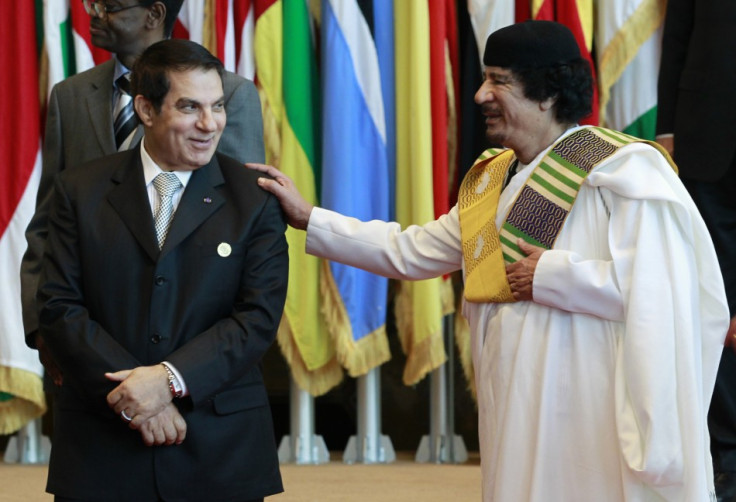Tunisia, the start of something big

On 17 December 2010, a Tunisian street vendor named Mohamed Bouazizi, set himself on fire because a female municipal official and her aides had had his goods confiscated. This sparked protests against the Government for a variety of grievances, social, economic and political.
These protests intensified after Mr Bouazizi's death on 04 January 2011, culminating in what has been called the Jasmine Revolution (after the national flower) and the virtual overthrow of the regime 10 days later with the departure of then President Zine Ben Ali.
One of the most successful and relatively prosperous countries in Africa, with a larger middle-class than its neighbours and much more diversified economy, what went wrong in this country with a distinct European influence?
Tunisia achieved independence from France in 1956 and after the monarchy was abolished in July 1957, Habib Bourguiba (1903-2000) became the country's first President.
Educated under the French system, Bourguiba read law and political science at the University of Paris and married Mathilde Lorrain (Moufida Bourguiba after converting to Islam) in 1927. On becoming President, Bourguiba established a strong, pro-Western administration though fiercely maintaining a non-aligned stance between the West and the Soviets. Brooking little or no opposition, he followed a liberal economic policy especially after the 1970s and promoted the private sector.
Bourguiba put in place many social reforms including female emancipation and other legal measures concerning the status of women and their rights. A much improved health-care system was put in place, the financial and banking system was overhauled, the nation's infrastructure was upgraded through the implementation of central planning and the President's own pet concern, education, was given top priority.
Unique in the Arab world, polygamy was forbidden by law. Although both Chambers of the Tunisian Parliament were heavily criticised as paying only lip-service to democracy, women make up over 20 per cent of parliamentary representation.
Tunisia's legal system tries to incorporate the best elements of the French legal code and Islamic law.
Whatever the theory though, much of the above when put into practice fell somewhat short of the mark. Since but a short time after achieving independence, Tunisia has been classified as an authoritarian and repressive regime. The power vested in and assumed by the President is probably the main cause of this.
The President appoints the Prime Minister and the Cabinet and many members of the (upper) Chamber of Advisors, regional Governors and other important posts throughout the country. Some "opposition" parties are allowed representation in the (lower) Chamber of Deputies which is dominated by members of the Government party, the Constitutional Democratic Party (RCD).
President Bourguiba fell from power after he was found to be medically "unfit to rule" in 1987 and his place was taken by his then Prime Minister, Zine Ben Ali. Between 07 November 1987 and his flight to Saudi Arabia with some family members on 14 January 2011, Mr Ben Ali was Tunisia's second President.
Born in 1936 and a graduate of the École Spéciale Militaire de Saint-Cyr, the foremost French military academy, Mr Ben Ali became a staff officer in the Tunisian armed forces in 1964, afterwards serving as Military Attaché to Morocco and Spain.
Appointed General Director of National Security in 1977, he then became Ambassador to Poland in 1980 before returning to Tunisia as Interior Minister in 1986 and finally, appointed by President Bourguiba as his Prime Minister in October 1987.
Given the instability of the region, the vicious civil war in Algeria that would shortly break out and Colonel Qaddafi next door in Libya, Mr Ben Ali can be seen as conducting a moderate, stable regime. Winning no praise from civil rights groups and with highly dubious election results, Mr Ben Ali is due credit for maintaining throughout most of his Presidential tenure, a five per cent per annum growth in GDP
Mr Ben Ali's economic policy encouraged continuing reforms of the financial system, welcomed foreign investment, boosted the once flagging tourist industry and developed closer ties with the EU which accounts for about 75 per cent of Tunisia's imports and exports.
The President had two big flaws however. Firstly his regime and in particular the family of his wife Leila, was seen as very corrupt. It is widely reported that Mrs Ben Ali and members of her Trabelsi family, took one and a half tons of gold on leaving the country.
The second problem was economic. Good as the growth figures were, they just could not close the increasing gap between the better-off middle classes and a growing pool of urban and rural poor. In many pockets of the cities and particularly away from big centres, the unemployment level exceeds 30 per cent.
Mr Bouazizi's case was not untypical. Yasmine Ryan of Al Jazeera reported on 20 January 2011 that he supported his mother, step-father and six siblings on $140 per month and the corruption found at the heart of Central Government was all too easily found throughout the country.
Unemployment, underemployment, corrupt officials and the 47 per cent rise in the cost of wheat during the past year were the root causes of Tunisia's Jasmine Revolution and are probably the real measure of the strife affecting the whole Arab world. It's proving to be a rather uncomfortable wake up call.
© Copyright IBTimes 2025. All rights reserved.





















